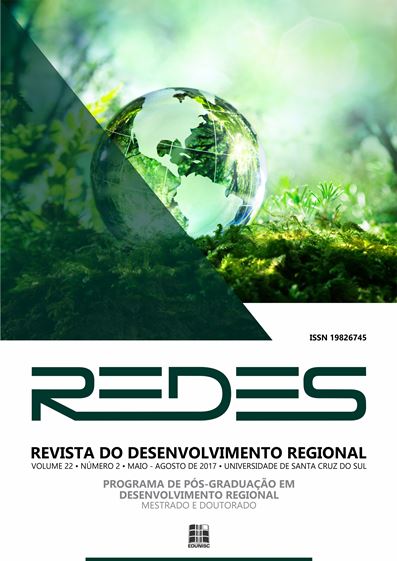Politicizing food consumption: strategies for advancing in agroecological transition
DOI:
https://doi.org/10.17058/redes.v22i2.9430Keywords:
Agroecology. Upscaling Agroecology. Local Food Systems. Less Meat Diet.Abstract
The starting point of this paper is the unfeasibility situation of the industrialized agriculture model and the dominant agro-food regime. Building a sustainable alternative is urgently needed. In the last decades, a great number of agroecological experiences have emerged which constitute, by their innovative character, the vanguard of an alternative agro-alimentary system. However, these experiences are not enough to produce a change to upper scales of social organization and even for their own survival as such experiences. The main challenge that Agroecology has raised is to upscaling the agroecological experiences. In this paper we propose a change of focus in the agroecological practice itself, betting on the formation of agro-ecological local food systems that, when winning on a scale, impose a favorable institutional framework. This will only be possible through a social mobilization not only focused on agricultural production or distribution, but on food, weaving social alliances with capacity for change. This can be done by politicizing food consumption.Downloads
Download data is not yet available.
Downloads
Published
2017-04-30
Issue
Section
Agroecologia
License
The submission of originals to this journal implies the grant, by the authors, of the printed and digital publication rights. Authors retain copyright and grant the journal right of first publication. Authors may only use the same results in other publications clearly indicating this journal as the medium of the original publication. Because we are an open access journal, we allow free use of the articles in educational and scientific applications provided the source is cited under the Creative Commons (CC-BY) license.How to Cite
Molina, M. G. de, García, D. L., & Casado, G. G. (2017). Politicizing food consumption: strategies for advancing in agroecological transition. Redes , 22(2), 31-55. https://doi.org/10.17058/redes.v22i2.9430



